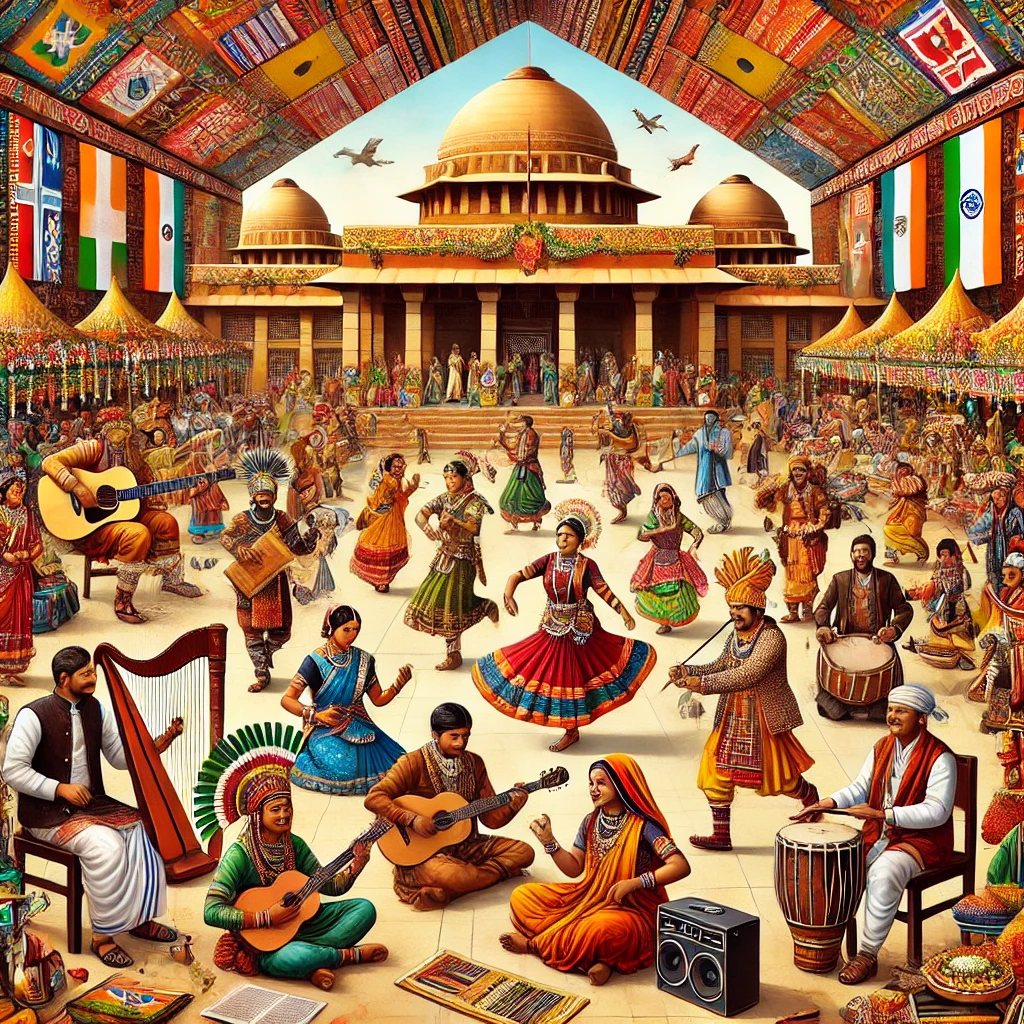Mahatma Gandhi, the Father of the Nation, was not only a key figure in India’s freedom struggle but also a visionary who advocated principles that remain relevant even today. His philosophy, deeply rooted in truth and non-violence, continues to guide individuals and societies worldwide. Let’s explore the core Gandhian principles and their significance in modern times.
1. Truth (Satya)
Gandhi firmly believed that truth is the foundation of a just society. He preached and practiced honesty in thought, speech, and action. In today’s world, where misinformation spreads rapidly, adhering to truth can help build trust and integrity in personal, professional, and political spheres.
2. Non-Violence (Ahimsa)
Ahimsa, or non-violence, was the cornerstone of Gandhi’s struggle against oppression. He demonstrated that change can be achieved through peaceful resistance rather than aggression. This principle remains crucial in resolving conflicts, promoting tolerance, and fostering peace globally.
Constitutional Aspect: Article 51A ( 42nd Amendment Act In 1976 ) of the Indian Constitution emphasizes the duty of every citizen to promote harmony and the spirit of common brotherhood, reflecting Gandhi’s non-violence philosophy.
3. Self-Reliance (Swadeshi)
Gandhi encouraged economic independence through the Swadeshi movement, promoting indigenous industries like Khadi. In the modern era, this principle inspires local entrepreneurship, sustainable development, and economic self-sufficiency.
Constitutional Aspect: Directive Principles of State Policy (DPSP) under Articles 38 and 39 promote economic justice and equitable distribution of resources, aligning with the Swadeshi ideology.
4. Satyagraha (Civil Disobedience)
Satyagraha, or non-violent resistance, was Gandhi’s method of protesting against injustice. He proved that determined, peaceful protests could bring about social and political change. This principle is still used worldwide in movements advocating human rights and justice.
5. Simplicity and Minimalism
Gandhi lived a simple life, free from material excess. His belief in minimalism teaches us the importance of sustainability, mindful consumption, and prioritizing needs over wants.
6. Equality and Social Justice
Gandhi strongly opposed discrimination based on caste, religion, or gender. He advocated for the upliftment of the marginalized and emphasized the dignity of labor. These ideals continue to be relevant in addressing issues of inequality and discrimination in contemporary society.
Constitutional Aspect: Article 17 abolishes untouchability, and Articles 15 and 16 prohibit discrimination based on religion, race, caste, sex, or place of birth, reinforcing Gandhi’s fight for social equality.
7. Sarvodaya (Welfare of All)
Gandhi’s concept of Sarvodaya envisioned an inclusive society where progress benefits everyone, especially the underprivileged. This principle aligns with modern efforts toward inclusive growth, sustainable development, and social welfare policies.
Constitutional Aspect: Article 38 directs the State to secure a social order that promotes the welfare of the people, embodying Gandhi’s vision of Sarvodaya.
8. Other Gandhian Ideals in DPSP
Several Gandhian principles are embedded in the Directive Principles of State Policy (DPSP) in the Indian Constitution:
- Article 40: Promotes the organization of village panchayats, reflecting Gandhi’s idea of decentralized governance.
- Article 43: Encourages living wages and decent working conditions for all workers, aligning with Gandhi’s vision of economic justice.
- Article 43B: Promotes cooperative societies, resonating with Gandhi’s idea of self-reliance and community development.
- Article 46: Directs the state to promote the educational and economic interests of Scheduled Castes, Scheduled Tribes, and weaker sections, supporting Gandhi’s commitment to social justice.
- Article 47: Aims to improve public health and prohibit intoxicating substances, which aligns with Gandhi’s emphasis on health and moral well-being.
- Article 48: Encourages agriculture and animal husbandry based on modern and scientific methods while protecting the environment, echoing Gandhi’s advocacy for rural upliftment.
Previous Years’ Questions on Gandhian Principles
Several competitive exams, including UPSC, have asked questions related to Gandhian principles. Here are some examples:
- UPSC 2020: “Discuss the relevance of Gandhian principles in today’s governance and policies.”
- UPSC 2017: “Explain how Gandhian ideals have been reflected in the Directive Principles of State Policy.”
- UPSC 2015: “How did Gandhi’s concept of Sarvodaya shape India’s approach to social and economic development?”
- UPSC 2013: “Analyze the role of non-violence in contemporary conflict resolution, drawing from Gandhi’s philosophy.”
Conclusion
Gandhian principles are not just historical ideals but practical solutions to many of today’s challenges. By embracing truth, non-violence, self-reliance, and social justice, individuals and societies can work towards a more ethical, peaceful, and sustainable world. As we navigate the complexities of modern life, Gandhi’s teachings serve as a beacon of hope and guidance for a better future.
What are your thoughts on applying Gandhian principles in today’s world? Share your views in the comments below!



